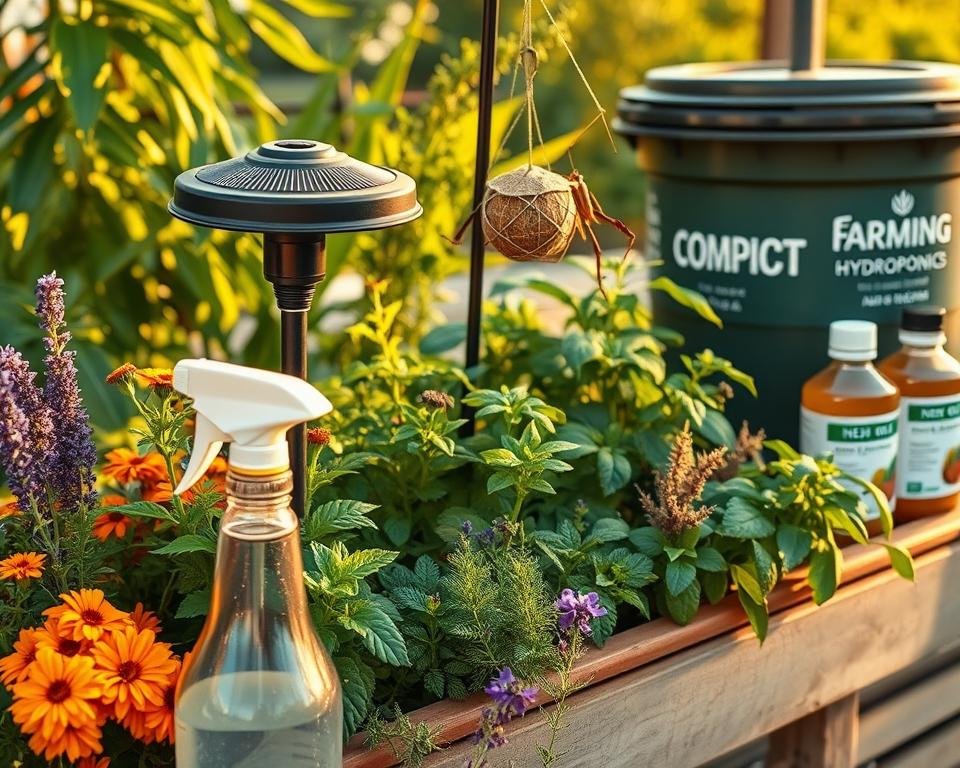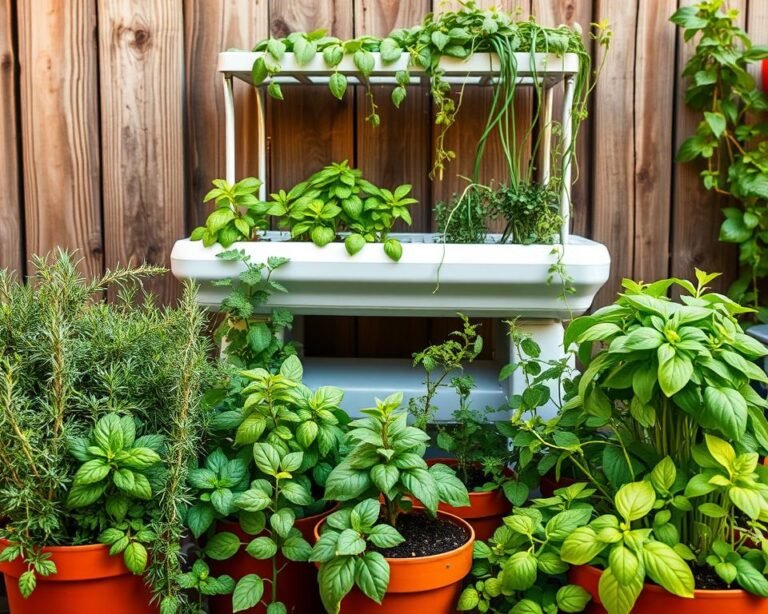Pest Prevention Techniques for Organic Container Gardens
Container gardening can be a joy, but pests can ruin the fun. I’ve turned my balcony into a lush garden, and one of the biggest lessons I’ve learned is the importance of effective pest prevention techniques especially when trying to stay organic.
Container gardens are great for small spaces, but they face unique pest issues. Your garden can quickly attract pests that harm your plants. Using natural methods is key for a healthy garden.
To keep pests away, understand your garden’s ecosystem. Strong plants fend off pests better than weak ones. Organic gardening helps your garden stay strong against pests.
Key Takeaways
- Container gardening requires targeted pest management strategies
- Organic solutions protect plant health and environmental balance
- Healthy plants are more resistant to pest infestations
- Natural control methods can effectively manage garden pests
- Early detection and prevention are crucial in container gardening
Understanding Common Container Garden Pests
Managing pests in container gardens starts with knowing the tiny threats. These pests can quickly harm your plants. It’s important to spot them early to save your garden.
Container gardens attract certain insects. While most insects are harmless, a few can harm your plants.
Identifying Pest Damage Signs
Watching for pest signs is crucial. Look for these signs:
- Discolored or yellowing leaves
- Holes or chewed edges on foliage
- Visible webbing between plant stems
- Small insects crawling on plant surfaces
- Wilting or stunted plant growth
Most Frequent Container Garden Invaders
Knowing your pests is the first step in managing them. Here are the most common pests:
- Aphids: Tiny green or black insects that cluster on new growth
- Spider Mites: Microscopic pests that create fine webs on plant leaves
- Whiteflies: Small white flying insects that gather under leaves
- Slugs: Soft-bodied creatures that leave slimy trails and create holes in leaves
Impact on Plant Health
Pests can severely harm your garden. They can stop plants from growing, spread diseases, and even kill them. Quick action is needed to protect your plants.
Remember: A healthy garden ecosystem is your best defense against destructive pests.
Pest Prevention Techniques
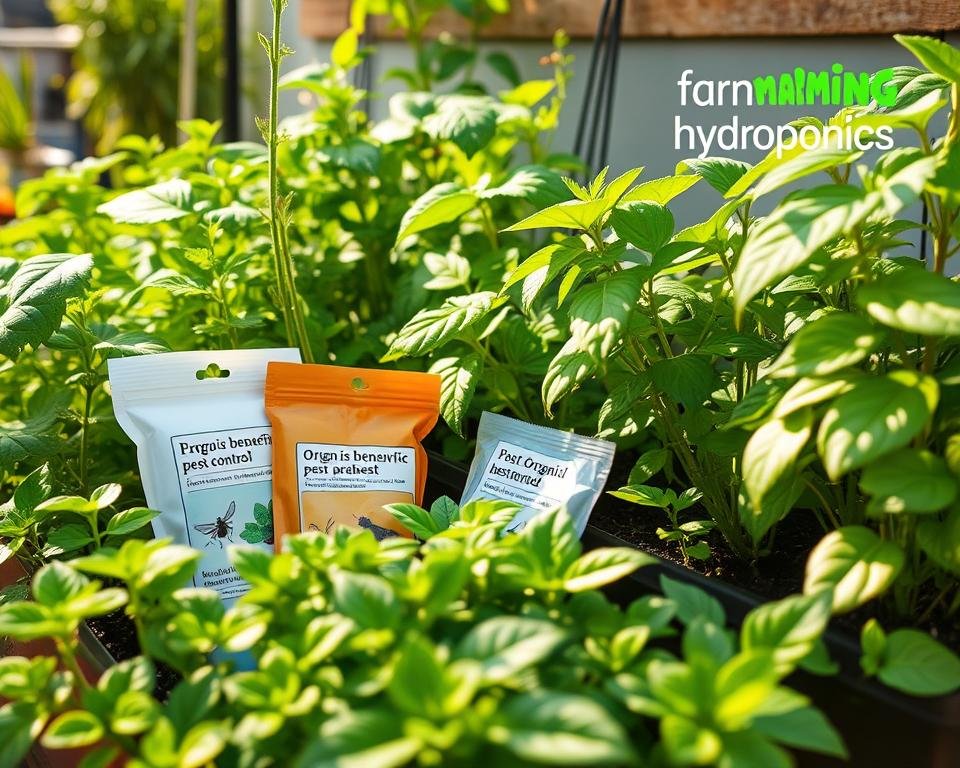
Protecting your container garden starts with proactive pest prevention. Strong plants are your first defense against pests. By using strategic pest exclusion methods, you can resist pest infestations naturally.
Habitat modification is key to a healthy garden. Here are some important strategies:
- Use high-quality potting mix with balanced nutrients
- Maintain proper pH levels for optimal plant health
- Ensure adequate spacing between containers for air circulation
Companion planting is a smart way to manage pests. Some plants repel insects while attracting beneficial predators. Strategic plant pairing creates a natural defense system for your garden.
| Prevention Strategy | Pest Resistance Impact |
|---|---|
| Soil Health Management | High |
| Companion Planting | Medium to High |
| Regular Monitoring | Critical |
Your container garden’s health depends on a holistic approach. Regular fertilization, careful plant selection, and understanding your garden’s microclimate help reduce pest risks. Prevention is always better than reactive pest control.
Natural and Organic Control Methods
Protecting your container garden from pests doesn’t need harsh chemicals. Organic pest control is effective and eco-friendly. It keeps your plants healthy and the garden’s ecosystem balanced.
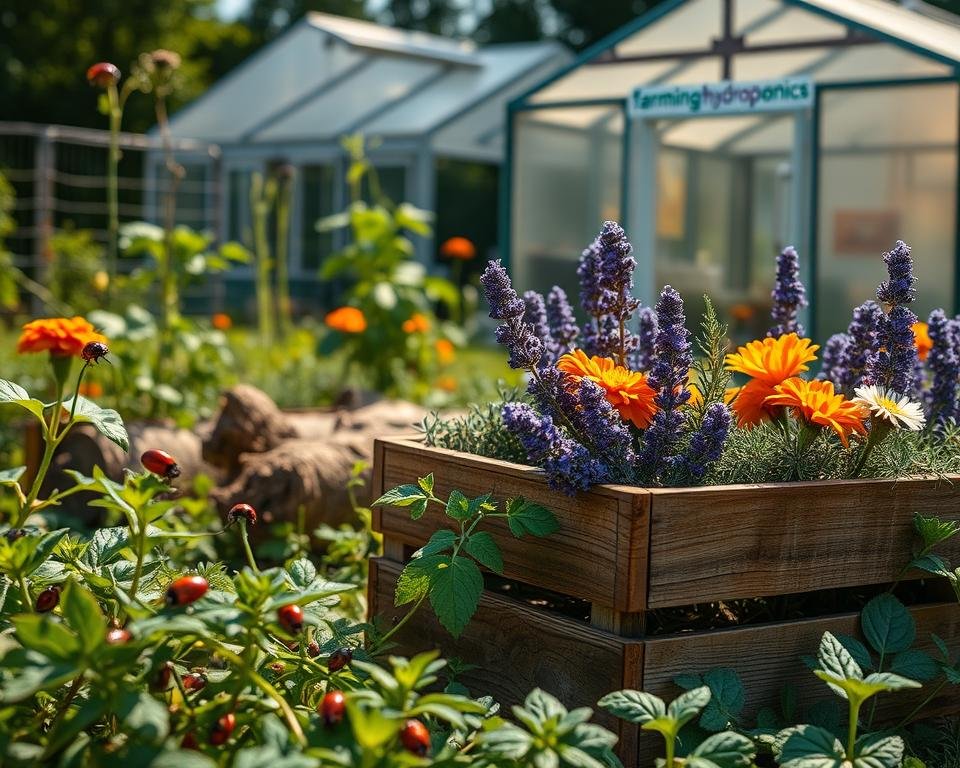
Using integrated pest management can cut down chemical pesticide use by 50%. This supports sustainable gardening. Your container garden can flourish with natural methods that protect plants and beneficial organisms.
Homemade Organic Sprays
Make strong insect repellents with kitchen ingredients. These natural solutions control pests without harming your garden:
- Neem oil spray (2 tablespoons per gallon of water) repels aphids and spider mites
- Dish soap solution (1 tablespoon per quart of water) controls infestations
- Garlic and pepper spray disrupts insect feeding
Beneficial Insects Introduction
Biological control agents can greatly reduce pest numbers. Adding beneficial insects to your garden creates a natural defense:
| Beneficial Insect | Target Pest | Population Reduction |
|---|---|---|
| Ladybugs | Aphids | Up to 20% population control |
| Lacewings | Soft-bodied insects | Significant pest reduction |
| Nematodes | Soil-dwelling pests | Up to 90% population reduction |
Natural Deterrents and Traps
Add more natural methods to your pest control plan:
- Use diatomaceous earth to stop crawling insects
- Deploy sticky traps for flying pests
- Create beer traps for slugs and snails
- Plant marigolds to reduce pests by up to 50%
By using these organic pest control methods, you’ll have a balanced, healthy garden. You’ll also protect beneficial insects and your local ecosystem.
Container-Specific Pest Management
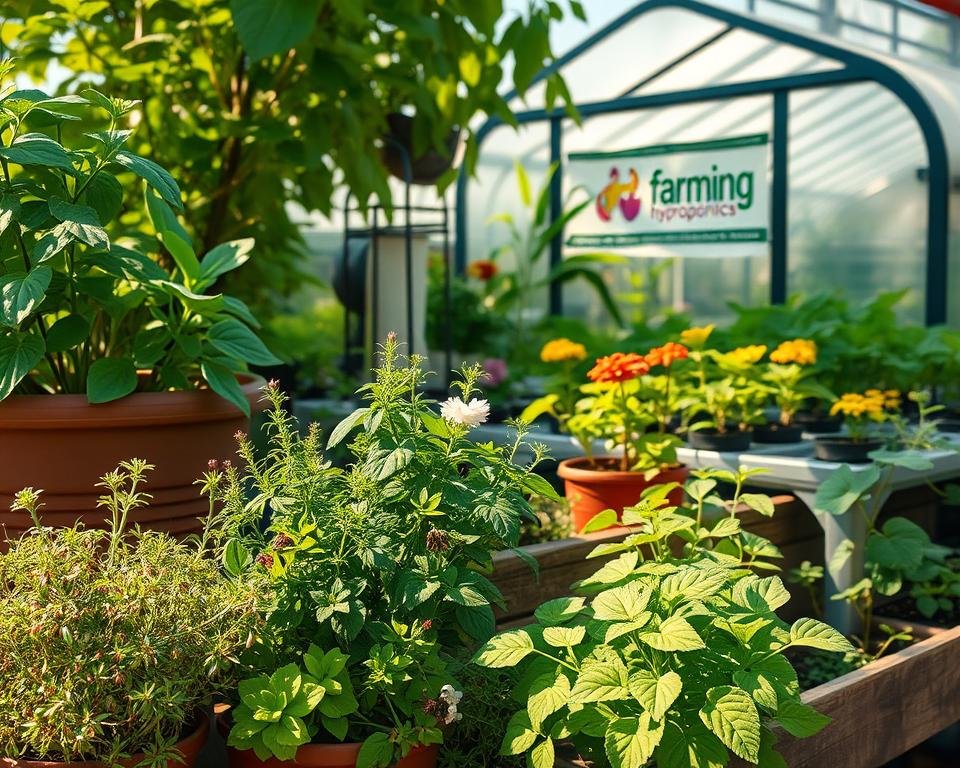
Container gardening has its own pest management challenges. Your small garden spaces need special strategies to stay healthy and pest-free. Unlike traditional gardens, containers require careful attention to integrated pest management techniques.
Understanding container gardening’s specific needs is key to preventing pests. Most insects are harmless, so knowing which ones to watch out for is important. Keeping your container garden pest-free requires proactive steps.
- Select containers with proper drainage to prevent root rot
- Use high-quality potting mix resistant to pest invasions
- Inspect plants regularly for early signs of pest damage
- Maintain good air circulation around container plants
Integrated pest management for container gardens aims to make pests’ lives hard. Natural predators like lady beetles can fight aphids. Introduce beneficial insects like predatory mites to eat thrips and scale insects.
Regular monitoring is crucial in preventing pests in container gardens. Check your plants weekly for signs of pests. Keeping plants healthy through proper care reduces pest risks.
Healthy plants are your first line of defense against garden pests.
If chemicals are needed, choose safer options like horticultural oils or pesticidal soaps. Always try non-chemical methods first. Use pesticides only when absolutely necessary in your container gardening pest management.
Seasonal Pest Control Strategies
Keeping your container garden safe needs a flexible plan for pest control. Each season has its own pest problems. Knowing these helps keep your garden healthy all year.
Good pest control means being ready for changes in the environment. Pests react to temperature, humidity, and plant growth in different ways. So, it’s important to have a detailed plan.
Spring Prevention Methods
Spring is when you start fighting pests. Here are some key steps:
- Clean and sanitize your garden area
- Refresh the potting soil to get rid of pests
- Look for early signs of pests on your plants
- Use preventative organic treatments to stop pests
Summer Pest Management
Summer is when you need to watch closely and act fast. Here’s what to do:
- Check your plants often for pests
- Use organic pest control methods
- Change how you water to avoid attracting pests
- Bring in good bugs to fight off bad ones
Fall and Winter Protection
Getting your garden ready for cold weather is key. Here’s how:
- Remove debris that pests might hide in
- Keep perennial plants safe from pests
- Store your containers right
- Use natural ways to keep pests away during winter
Using these seasonal pest control tips will help your container garden stay strong all year.
Conclusion
Your container gardening journey doesn’t end with understanding pests—it thrives through consistent integrated pest management. Organic pest control strategies make your garden strong and resilient. They create a sustainable ecosystem that fights off invasive threats naturally.
Using preventive techniques like regular inspections and natural deterrents can greatly lower pest risks. By following integrated pest management, you’ll protect your garden without harsh chemicals. This approach is proactive and effective.
Remember, successful container gardening needs ongoing vigilance and adaptability. Each season brings new challenges. But with organic methods, you can keep your garden healthy and pest-free. Your dedication to green practices will make your container gardens beautiful and productive all year.
Organic pest control is about finding balance. It’s about knowing what plants need, supporting good bugs, and working with nature. With patience and the right techniques, your garden can be a model of sustainable, pest-resistant growth.

